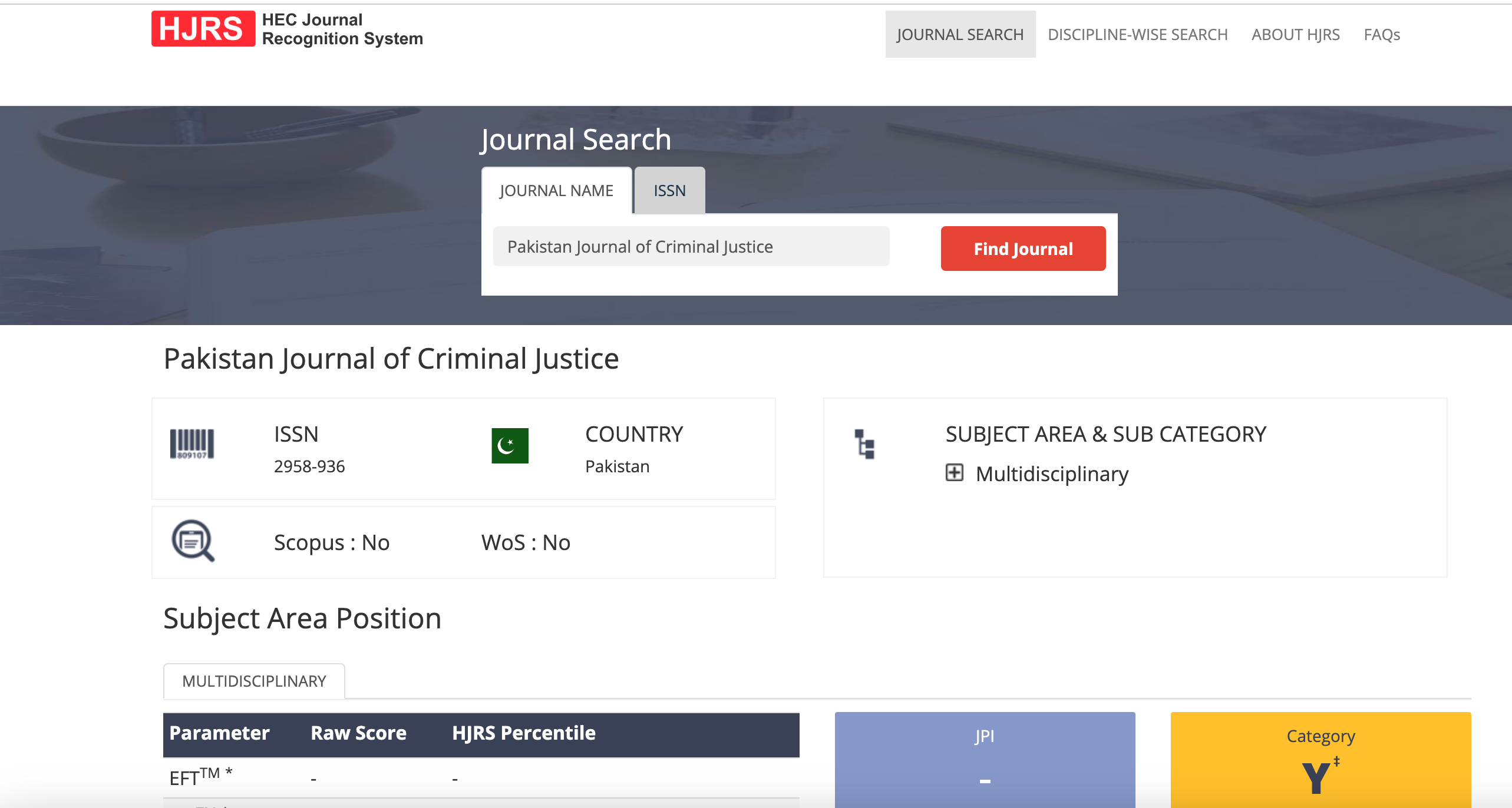Reforming Pre-Arrest Bail in Pakistan: Lessons from India
DOI:
https://doi.org/10.62585/pjcj.v4i1.99Keywords:
forensic evidence, legal trial, investigation, bailAbstract
This paper presents a comparative analysis of the legal frameworks governing pre-arrest bail (PAB) in Pakistan and India. It has focused on the statutory provisions, judicial interpretations, and procedural practices that has shaped its application in both countries. PAB is part and parcel of liberty and fair trial. The evolution of PAB in Pakistan and India has diverged considerably, in spite of their shared colonial heritage and similarities in procedural laws. This study examines the key trends in its evolution, similarities, and differences in the administration of PAB. It explores how these frameworks are impacting the rights to liberty and justice. Through a thorough analysis of relevant legal provisions and landmark case laws, this research identifies areas where the Pakistani Criminal Procedure Code (CrPC) needs amendments. In the end, this paper proposes specific amendments for the CrPC of Pakistan with an aim to align it with contemporary legal standards and best practices which are being observed in India. The study contributes to the ongoing discourse on bail reforms. It offers valuable insights that could enhance the protection of individual rights and ensures the effective administration of justice in both nations.
Downloads
Published
How to Cite
Issue
Section
License
Copyright (c) 2024 Amamah Maqbool, Saima Butt, Noreen Akhtar, Hafiz Muhammad Azeem

This work is licensed under a Creative Commons Attribution-NonCommercial 4.0 International License.





